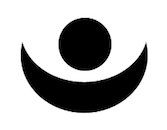This summer, why not try something completely different and immerse yourself in nature for yoga sessions with baby goats. There are several dates available for the sessions. Please make sure that you read all of the below information before booking a session. Booking a session is confirmation that you have read the information below and accept the contents herein.
Session Dates:
Monday 19th June at 6 pm
Sunday 25th June at 11 am
Monday 26th June at 6 pm
Sunday 2nd July at 11 am
Location
The session will take place at Moreton House Farm which is very close to Bishton Hall. The full address and directions will be provided upon booking the sessions.
What is Yoga with Goats?
Yoga with goats is just that – your regular yoga session with the added benefits of being in the outdoors in the presence of young goats. The goats will wander around attendees during the session, interact with and play with you. Being near to and engaging with goats brings the body and mind into a state of relaxation. The parasympathetic nervous system is activated as feelings of happiness, joy, freedom and connection arise. Yoga with goats has been shown to lift the spirit, reduce feelings of low mood, depression and anxiety and provide a lasting mood boost. Yoga with goats is a great way to feel connected to nature and at peace in the world.
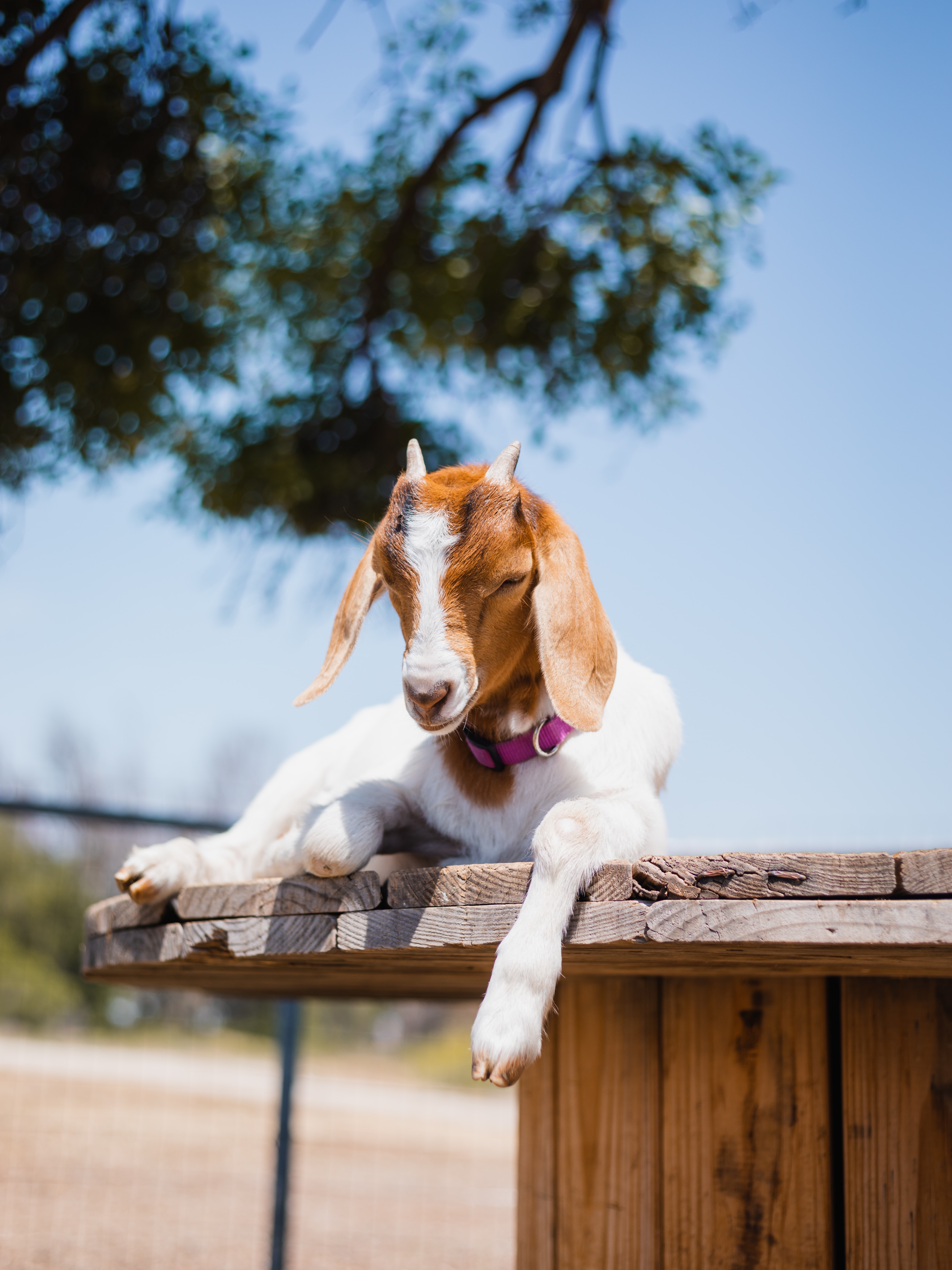
What to expect
This session is an informal, gentle yoga practice set in an outdoor space. We will practice within an enclosed, grass field if the weather is dry or inside a covered barn if it rains – the session is not weather dependent, so please do still come along if you have booked a session and it looks like rain.
We will flow through a gentle seated warm up as the young goats get used to our presence (and we get used to being amongst the goats) and then we will move through a series of postures that will allow us to interact with the goats and get the most out of their playful nature. The goats do like to climb and jump up, so don’t be surprised if you find a goat on your back during tabletop pose or a goat offering you a helpful assist in downward dog.
As we will be practicing in a field or in a barn, you should expect the presence of grass, dirt and goat droppings (along with everything else expected of a working farm), so you may need to clean your yoga mat thoroughly after the session. There will be couch roll available to place under your mat if you’d like to.
The goats are young, active and often vocal. They will undoubtedly be having fun at the session along with you, so you should be prepared for quite boisterous activity and please be aware that the goats have hooves and horns. The goats will be supervised throughout the session.
What to bring with you (and what not to bring)
All you need to bring with you is your yoga mat. Please do try to keep all other belongings to a minimum – leave handbags, extra layers, bottles etc in the car as goats will help themselves to your precious items without asking! If the weather is hot, you may wish to bring water with you in a sturdy container. You may also wish to use sun screen and insect repellant (animal friendly).
When choosing what to wear, please avoid anything with hanging tassels or straps that could be nibbled and just wear something that you feel comfortable moving in. You may not wish to wear your favourite yoga clothes as again we will be in a field and the goats don’t tend to wipe their feet. Be aware that dangling jewellery and watch straps can be tempting to goats. Any jewellery should be minimal and watches should be securely fastened.
If you wish to take photos/videos of the session, you may wish to set phones up outside the perimeter of the field as the goats may trample or nibble on devices (please read carefully the disclaimer of liability below). If you can keep your phone in your pocket and take it out for a few snaps when possible, that may keep it safer from little hooves.
You should not need a blanket as we will be in a field and the ground is soft. If it looks like rain, you may want something to kneel on in the barn – as above, avoid bringing blankets with tassels or blankets that you are particularly attached to.
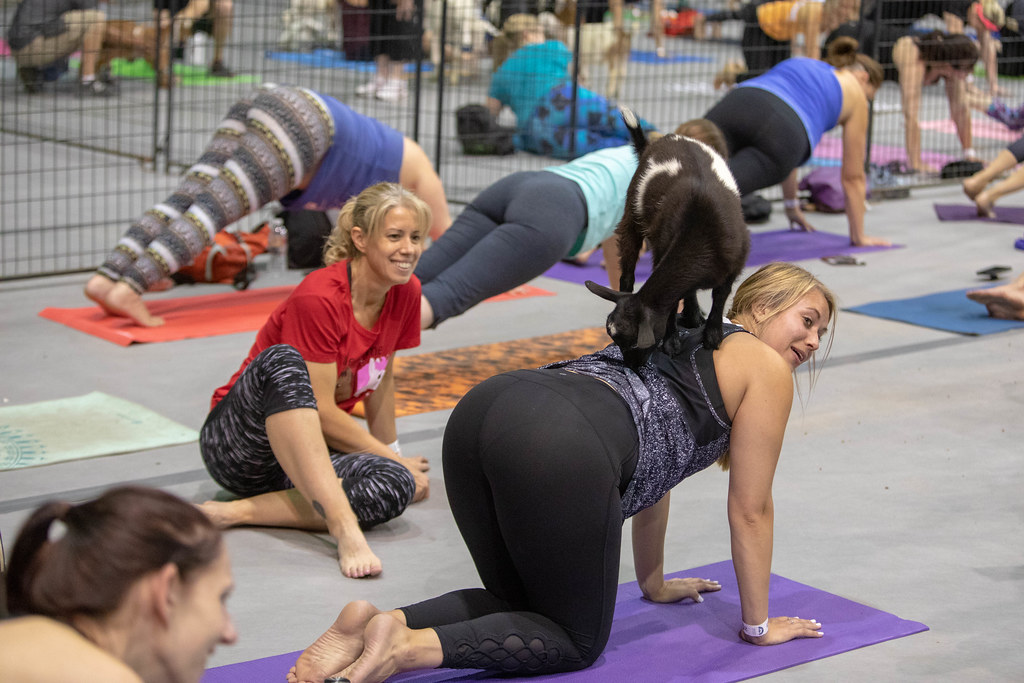
Health & Safety
The sessions will take place on a working farm, so it is important that you drive carefully, observe any notices and keep to paths and roadways until in the field for the session. A parking area will be designated for our use at the back of the farm buildings – please park where directed to ensure your vehicle is out of the way of other farm traffic.
Unfortunately, Yoga is not a spectator sport, so please don’t bring others to the session who are not taking part. The farm will be working at the time of the sessions so we can’t have people outside of the field who are unaccounted for.
The sessions are only suitable for people aged 16 years and over.
Please ensure that you have used hand sanitiser prior to and after the session and wash hands thoroughly as soon as possible after the session.
Disclaimer
The UK Well Nest Limited and Moreton House Farm accept no liability for loss of or damage to any property or vehicles occurring before, during or after the session while on Moreton House Farm property. Attendees should ensure that they have the proper level of mobility, fitness and health to take part in the sessions and remain responsible for all of their own possessions and vehicles brought onto Moreton House Farm property.
The Seven Types of Rest: A Comprehensive Guide for a Healthier You
In our fast-paced world, rest has become a crucial aspect of maintaining our mental and physical well-being. While sleep is the most well-known form of rest, there are other types that are equally essential for our overall health. Understanding and incorporating the seven types of rest into our daily lives can help us recharge and stay focused, leading to increased sense of achievement and well-being. In this article, we’ll explore these seven types of rest and provide tips for incorporating them into your routine.
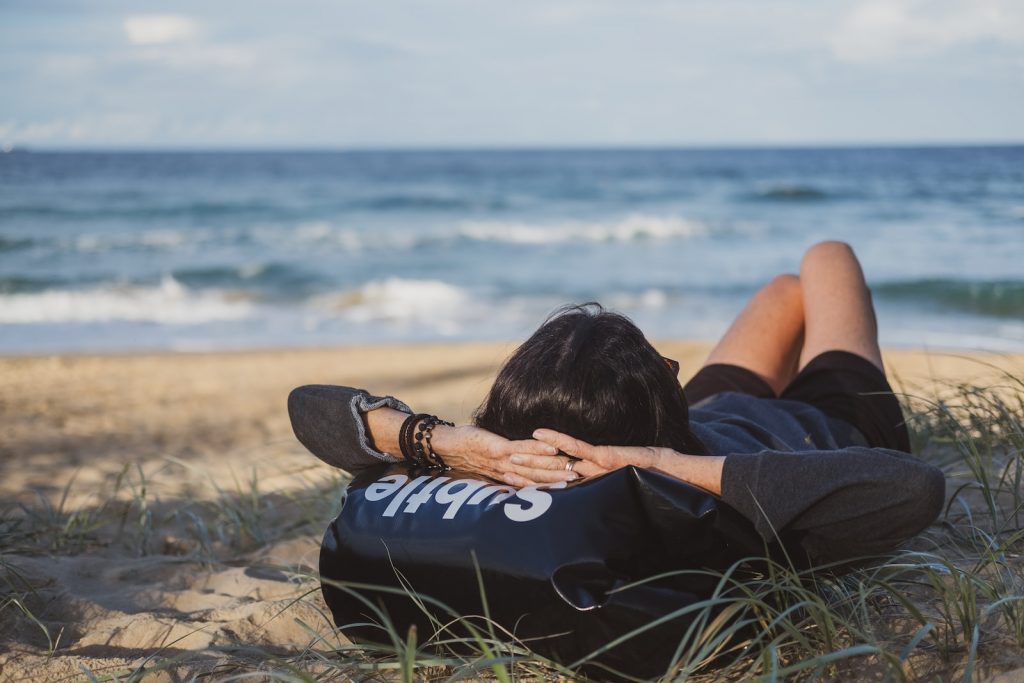
Physical Rest
Physical rest is the most familiar form of rest, and it’s often associated with sleep. However, it can also include other activities that allow our muscles and joints to recover from the strains and stresses of daily life. Examples include stretching, yoga, and massage. Incorporating physical rest into your day can reduce fatigue, improve muscle recovery, and lower the risk of injury.
Mental Rest
Mental rest is essential for reducing brain fog and maintaining focus throughout the day. This type of rest involves taking breaks from cognitive tasks, such as problem-solving, decision-making, and creative thinking. Meditation, mindfulness exercises, and stepping away from screens can all help in providing mental rest. Aim for periodic short breaks during the day and create a routine that allows your mind to recharge regularly. Taking a mindful tea break or a mindful moment outside can really make a difference.
Emotional Rest
Emotional rest focuses on processing and expressing our feelings to maintain emotional balance. This type of rest can be achieved through journaling, therapy, or simply having open conversations with a trusted friend or family member. By addressing our emotions and allowing ourselves to be vulnerable, we can experience relief and a sense of emotional well-being. It’s often said in mindfulness practice; what we feel, we heal.
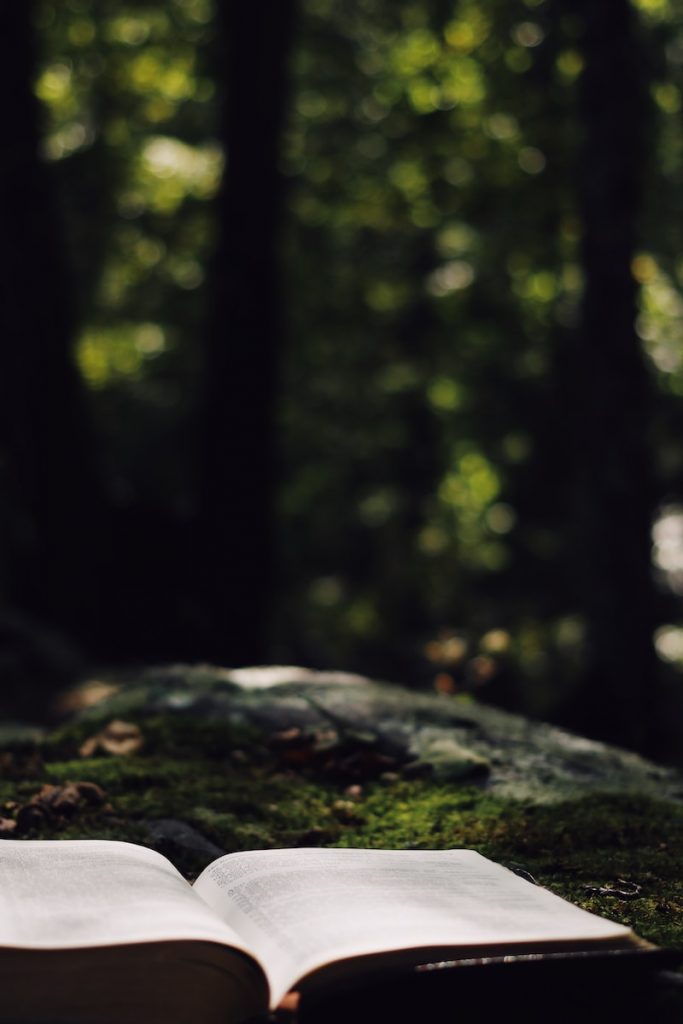
Sensory Rest
Sensory rest is essential for counteracting the constant bombardment of stimuli from our environment, such as noise, light, and screen time. To practice sensory rest, create a calm and quiet space where you can retreat and unplug. Activities like reading a book, taking a walk in nature, or closing your eyes for a few minutes can all help to reduce sensory overload and provide restorative benefits. Earplugs can also be really valuable to increase sensory rest when you share space with others and it’s harder to find quiet.
Social Rest
Social rest is the act of finding balance between socialising and solitude. This type of rest can involve spending time with people who recharge your energy or seeking out moments of solitude to regroup and reflect. Identify which relationships in your life provide support and comfort, and make an effort to prioritise those connections.
Creative Rest
Creative rest is the process of rejuvenating our creative energies and nurturing our imagination. It involves stepping away from our usual creative outlets and engaging in activities that inspire and invigorate us. Visiting an art gallery, attending a concert, or exploring a new environment can all help to stimulate our creativity and provide the rest our minds need to stay innovative.
Spiritual Rest
Spiritual rest is the practice of connecting with a higher power, whether that is through religion, spirituality, or a sense of purpose in life. This type of rest can help us find meaning and foster a sense of inner peace. Spiritual rest can be achieved through prayer, meditation, or participating in religious or spiritual activities that resonate with your beliefs.
Incorporating the seven types of rest into our daily lives can help us maintain a balanced and healthy lifestyle. By understanding the different ways we can rest, we can address our individual needs and prioritise self-care. So, take a moment to assess which types of rest are missing from your life and begin to create a well-rounded rest routine that supports your overall well-being.
Rest doesn’t need to be another thing that’s added to your ‘to do’ list. Once you identify which types of rest you need more of, try adding micro-doses of rest into your day as often as possible. Leave yourself post-it note reminders, set alarms on your phone, add mini rest breaks to your calendar – whatever it takes to create the habit of healthy rest.
Join us at The Well Nest for regular workshops, classes and retreats to help you find rest and self-care.
Natural Balance Wellness Retreat – Sattva
Sunday 24th July 2022, 10 am – 4 pm
With modern life becoming ever faster and more demanding, the rise of a movement to live well and in natural harmony with the environment (Sattva) is becoming more appealing. The concept of Sattva is central to this desire to live simply, live purely and live happily. Sattva is the wish to have an awakened life, peaceful mind, vital body and pure spirit.
If you have a wish to ‘feel’ life a little more; to slow down and find your true purpose, then it’s time for you to rediscover your natural balance. This day retreat is designed to bring body, mind and spirit back into natural balance through carefully designed movement, creativity, food and deep relaxation. Retreats at The Well Nest are led by our resident expert and Director, Hannah. With 20 years experience in yogic study and practice, you couldn’t be in better hands.
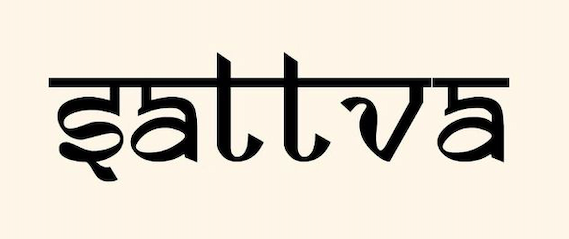
Programme for the day:
9.45 am – Arrival and welcome
10 am – Kundalini yoga kriya (breath, mantra, movement and rhythm) to balance body, mind and spirit. The focus of this session will be creating hormonal balance for overall wellbeing
11 am – Creative aromatherapy workshop. Create natural, organic self-care products to be kinder to the body and to the planet. We will create a collection of products from bath salts, body scrubs, sugar scrubs and deodorants.
1.30 pm – Lunch and gin tasting at Mercia Spirits Lab. Delicious, healthy platters with bespoke gin creations and herbal additions.
3 pm – Yoga nidra (yogic sleep) and sound bath to leave you deeply relaxed and balanced to end the day.
What to expect:
Kundalini Yoga
Kundalini yoga is an ancient tantric practice of manipulating energy to find balance, vigour, vitality and to allow the body, mind and spirit to thrive. This isn’t yoga as you know it; this is a deeply beneficial holistic practice. The kriya (yoga set) that we will practice on this retreat is designed to balance hormones, bodily systems and mental wellness to bring the body back into a place of balance, strength and alignment. We will use rhythm, posture, breathwork and mantra to control the flow of energy and awaken healthy functioning of our physical and energetic body. If we are fortunate enough to have good weather, this part of the retreat may take place outdoors in the beautiful secluded grounds of Bishton Hall.
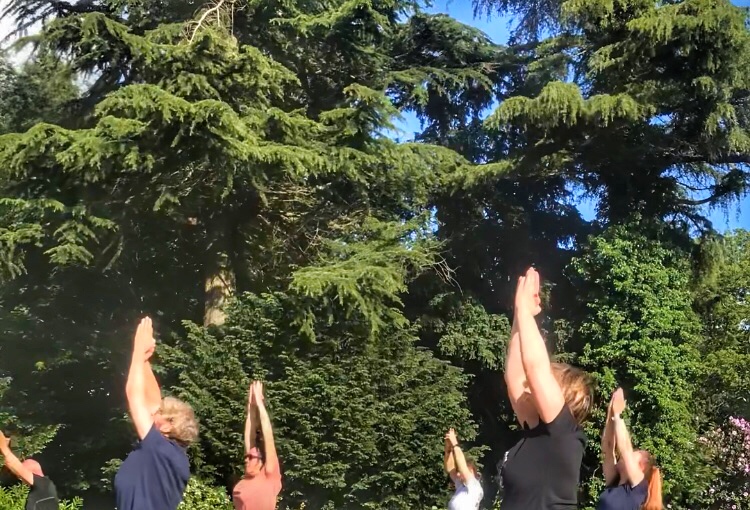
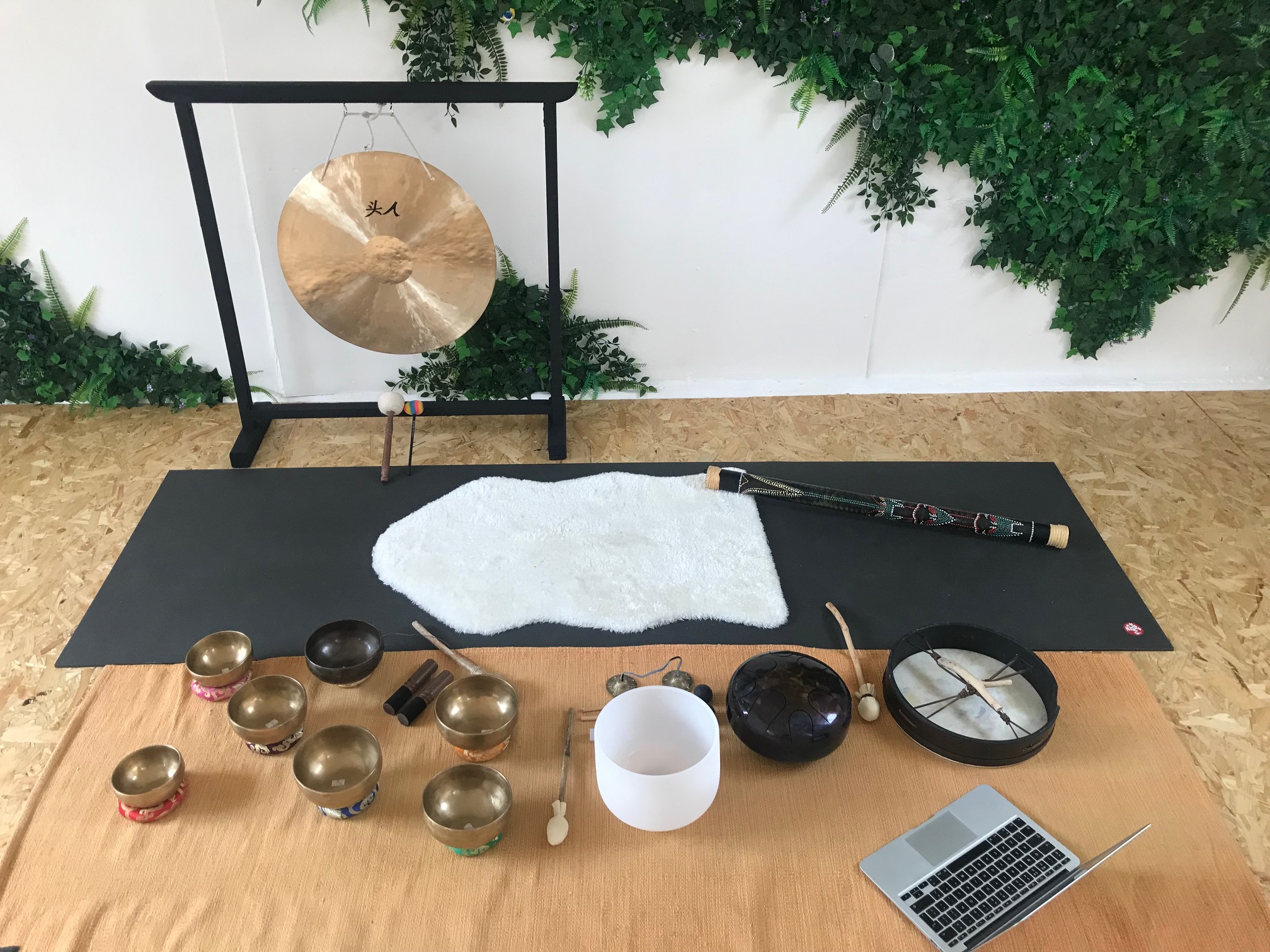
Creative Aromatherapy
The retreat will then move into creative design and blending of self-care products that will continue the natural balance element of this retreat. Discover essential oils that can be used to address your specific health concerns so that your body can be cleansed, strengthened and rebalanced. We will create natural, organic deodorant, body scrub, bath salts and sugar scrubs – a complete self care ritual that will lift the mind, body and spirit.
Lunch and Gin Tasting
You will then visit Mercia Spirits Lab for a wonderfully warm welcome and carefully designed lunch to complement the sattvic life. As you enjoy the wonderful platters available at the Spirit Lab, you will also be treated to a gin tasting – a special blend of Mercia Gin with herbal additions. (Vegan and gluten free diets can be catered for upon request).
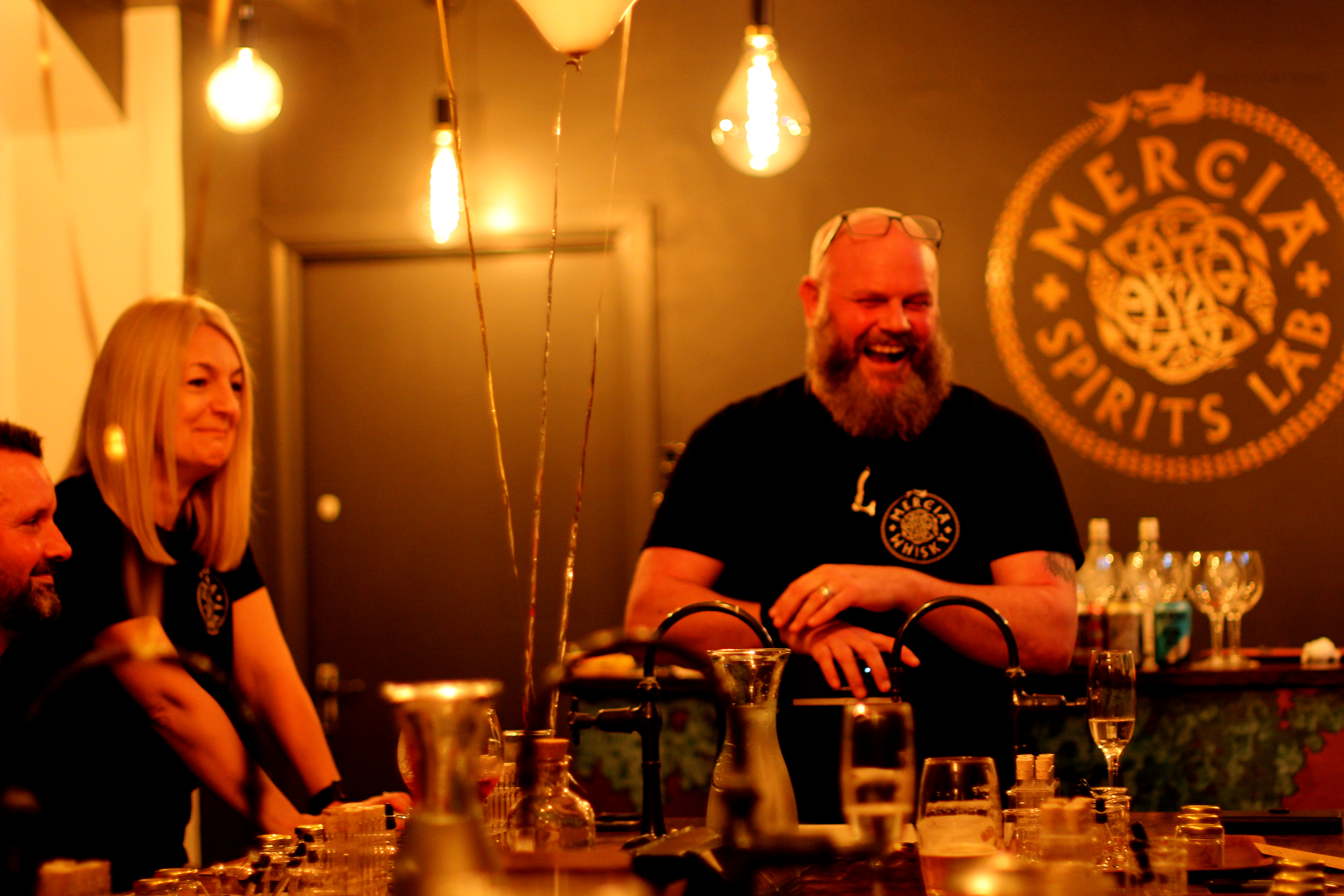
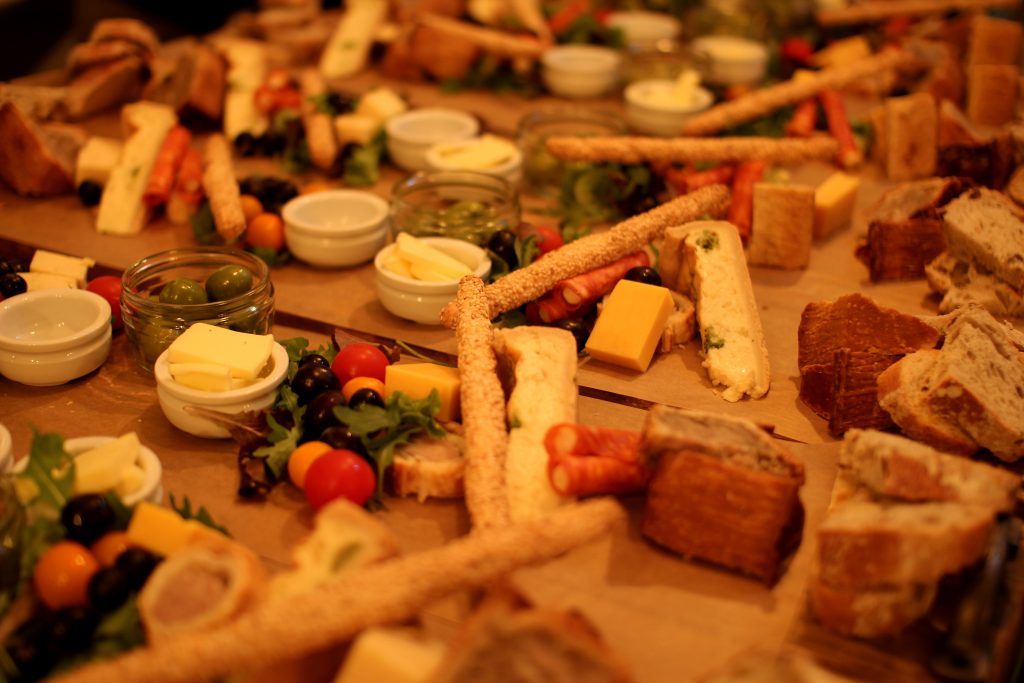
Yoga Nidra and Sound Bath
The retreat will then be rounded off with a wonderful yoga nidra practice – a guided visualisation to induce deep yogic ‘sleep’ where the mind is calmed into deeper brainwave states. The nidra will flow into a sound bath where you will absorb the wonderful sounds of instruments chosen to bring balance to mind and body. Relax deeply as the gong, Tibetan bowls, crystal bowls, chimes, wind and percussion instruments are played in this wonderful, soothing end to the retreat.
Participants will take away a bag of treats as well as the self-care products created on this retreat.
We can’t wait to meet you and help you to reclaim your natural balance.
NOTE: if the booking calendar fails to load, please book via this link
Book your space here for Sunday 24th July 2022:
It’s The Well Nest’s 5th Birthday!
We are celebrating our 5th birthday this month – come and join us for special offers, prizes and wonderful new workshops and experiences at The Vegan & Sustainable Living Festival 22nd – 24th April at Bishton Hall.
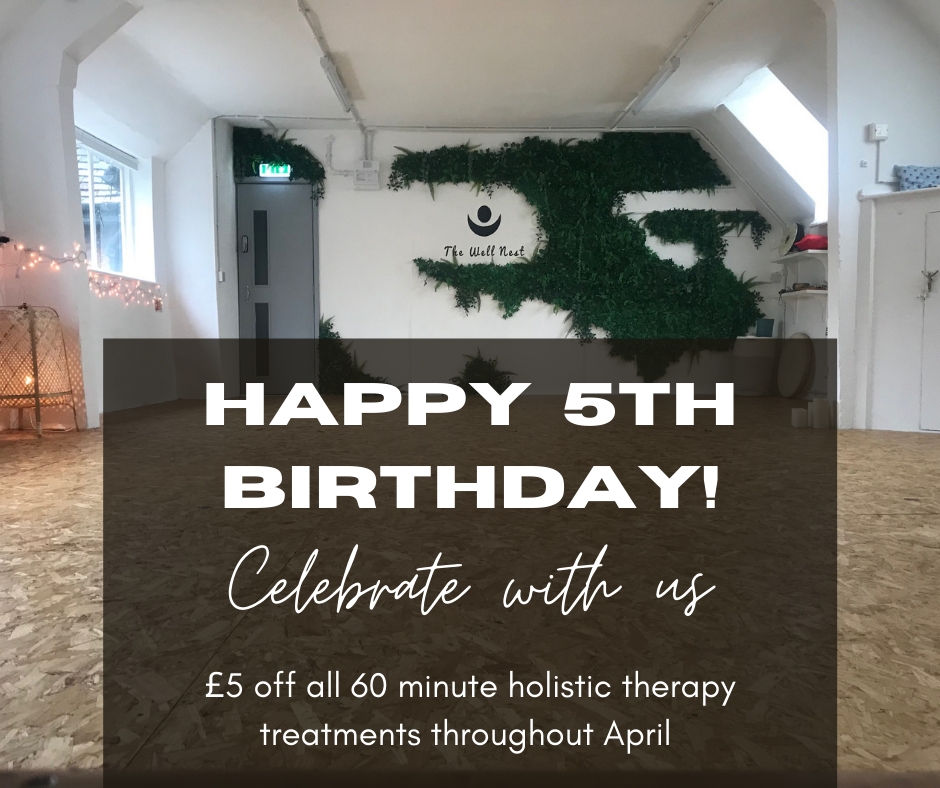
Thank You
I’d like to start by saying a huge, huge thank you to everybody that has joined me for a yoga class, workshop, meditation, therapy or treatment over the last 5 years. I’m truly grateful to each and every one of you that have joined me on this journey. You have all helped The Well Nest to survive through the toughest of years. A lot of you have become great friends over the years – some have been with me from the start! – and I have absolutely loved seeing you blossom on your wellbeing journeys. It’s a great privilege and a joy to work with people and share the gifts of holistic therapy, meditation and yoga…there is so much more on the way from The Well Nest!
What’s on This Month?
To celebrate our 5th birthday, there are number of special offers, workshops and experiences to try.
£5 off all 60 minute holistic therapy treatments – throughout the month of April, every holistic therapy (60 minutes or more) has £5 off. Get yourself booked in as soon as possible as spaces are already filling up.
Prize giveaway – enter our prize giveaway at The Vegan & Sustainable Living Festival. Your opportunity to win therapies, treatments and wellbeing products.
Workshops and experiences – This month there will be new workshops with sustainable themes such as making your own natural deodorant and body scrubs. There will be sound baths, mini holistic therapies such as Indian head massage and hand massage. Join me in the fabulous Nordic Tipi at the Vegan & Sustainable Living Festival.
Coming Soon…
More exciting things will be coming soon to The Well Nest…regular PILATES classes with our new teacher Sue: perfect for beginners and those wishing to begin a movement practice. Pilates is fantastic for building stability and core strength as well as assisting with hip and back strength and mobility. You might just find a new lease of life! If you’re interested in Pilates classes, use the button below to sign up to the waiting list and be the first to grab a space when classes go live:
MEDITATION classes with Hannah will soon be starting on a weekly basis at The Well Nest. This will be your weekly opportunity to take time out for yourself, practice meditation in a quiet and friendly atmosphere and seek advice on your practice. We will try meditations from lots of different traditions (not just mindfulness) so you can become a skilled meditator; able to find peace of mind even under the most difficult challenges of modern life.
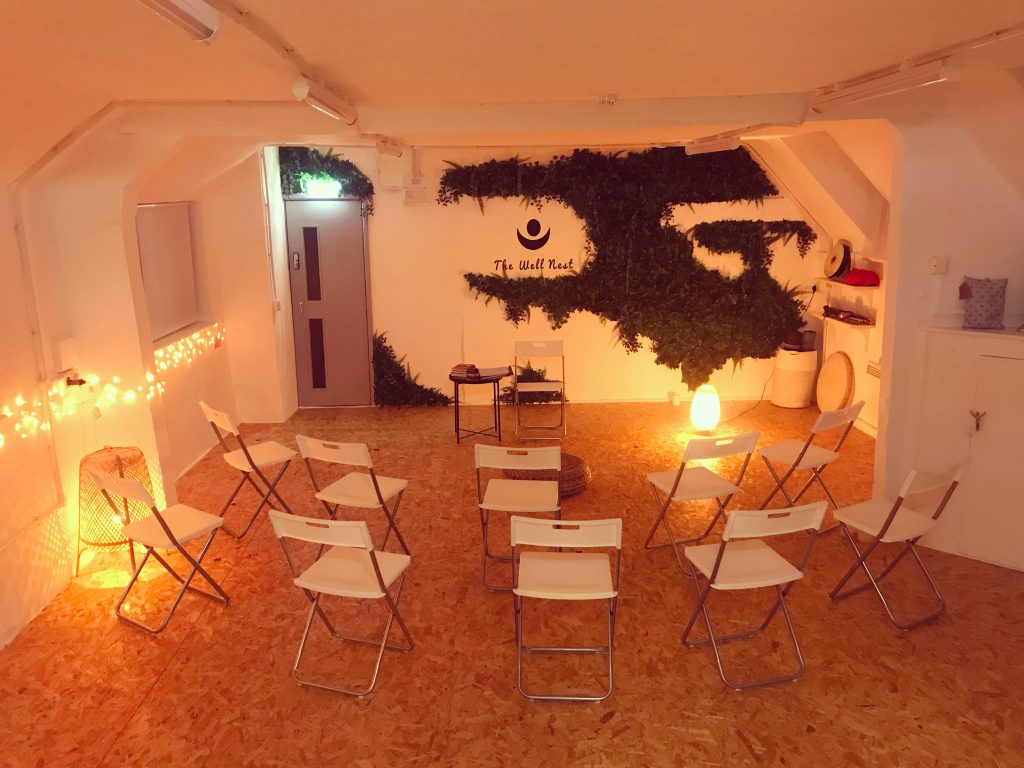
See you soon!
Vegan & Sustainable Living Festival!
Exciting things are happening at Bishton Hall this month – join us for our first Vegan & Sustainable Living Festival! Come along and try some fantastic vegan street food, shop sustainably, discover amazing local makers and crafters and join me in the Wellbeing Tipi for some retail therapy, self-care therapies and workshops.

Main Marquee
We have so much going on at the Vegan & Sustainable Living Festival, it’s hard to know where to start!
On the lawn we have a large marquee housing around 30 vegan and sustainable living traders. Here you’ll find things such as candles, bath and body care, pies, Turkish food, jewellery, general stores, wood crafts, sauces and pickles, eco gifts, recycled and up cycled crafts, wines, doughnuts, preserves, flowers…the list goes on.
There is also a presentation area in the main marquee where you can hear traders talk about their sustainable projects, vegan living and see demonstrations and taste products. There will be a new speaker every hour on each day of the festival, including our very own Charles Hanson at 3 pm each day giving talks on antiques and buying sustainably.
Holistic Wellbeing Tipi
Take a walk around the grounds and you’ll find a magical Nordic Tipi housing the Yoga and Wellbeing area. Come and see me there for retail therapy, mini holistic treatments in the Tipi, sustainable themed workshops and a chance to win prizes.
You can shop all things yoga and meditation – mats, yoga blankets, yin pillows, blocks, carry straps, meditation cushions and eye pillows. A vast supply of incense and incense holders, diffuser oils, oil burners, bath and body care, mala beads, mandala cards, salt lamps, candles and gifts!
On offer during the festival will be mini holistic treatments such as hand massages and Indian head massage. Workshops on creating your own natural deodorant and aromatherapy body scrubs. There will also be Sound Baths to relax and unwind.
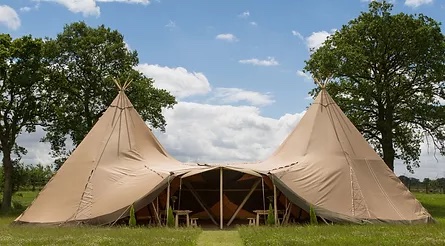
Artisan Courtyard and Street food
Come and visit our wonderful artisan courtyard of shops and makers:
The Quirky Emporium for sustainable furnishings, gifts, handmade candles and items for the garden.
Mercia Spirit Lab for tastings, artisan gin and whisky, cocktail masterclasses (!), gift vouchers and experience days.
LuvFelt for fabulous handcrafted works of art, clothing and accessories, bird house pods, cards and tea towels.
S&P Watercolours for wonderful works of art inspired by the natural world as well as cards, mugs, cushions and tea towels.
Earth & Fire Ceramics for classes and workshops in pottery and throwing techniques as well as handmade works of art, sculpture and gifts.
Ivy House for a huge range of homewares and gifts, cards and handmade candles.
Kate Bennett Fine Art Photography for wonderful landscape photography, inspirational and occasion cards and giftware.
For the vegan festival there will be street food from Nelly’s Delhi (gorgeous Indian food), No Baloney (vegan sausages), Where’s the Catch (vish and chips), Hugo’s Bar (ice cream, jacket potatoes, hot and cold drinks, milkshakes), stews and soups from Mercia Spirit Lab. Yum!!
Children’s Crafts
Did I mention there will be FREE children’s crafts all weekend? Wander over to our fabulous historic orangery and find Outdoor Answer offering children’s crafts throughout the weekend. Let your little ones try making seed bombs, making leaf pledges for Earth Day (Friday 22nd April) and connecting to nature. Bishton Hall has fabulous grounds including a Temple Garden, woodland and amazing historic trees – let their imaginations run wild.
Cannot wait to see you there!
Yoga Focus – What is Ashtanga Yoga?
If you’ve ever taken a vinyasa class with me, you will be familiar with a lot of the poses from the ashtanga lineage. Vinyasa yoga is essentially a free flowing version of ashtanga – anything goes. Ashtanga is itself quite the opposite; a set number of postures, in a set order…every time.
You may think this sounds a little restrictive and (gasp!) boring, but that is not the case with Ashtanga. There are so many poses and vinyasas (breath with movement) in and out of the poses, that boredom is the last thing on your mind. Lets take a closer look…
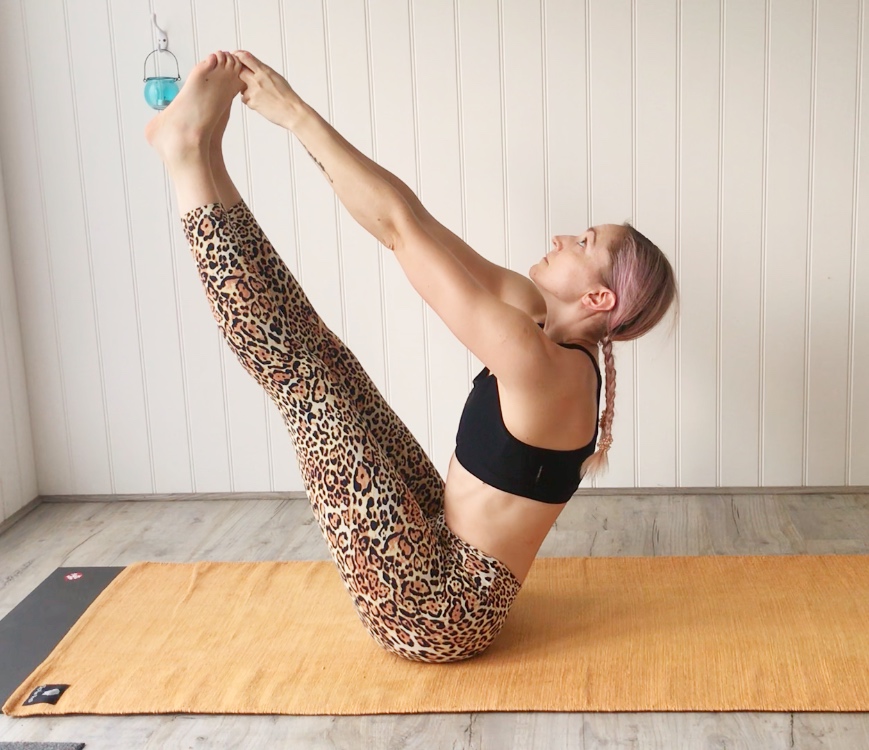
Historically speaking…
Ashtanga is a dynamic form of Hatha yoga that has its roots in the town of Mysore, south India. The ashtanga method is an ancient system of yoga that was taught by Vamana Rishi in the Yoga Kurunta. It is believed that the text was imparted to Sri T. Krishnamacharya in the early 1900’s by Guru Rama Mohan Brahmachari.
Ashtanga means ‘eight limbs’ as described by Patanjali (an Indian sage) in the Yoga Sutras (the Sutras are believed to have been written between the 2nd and 4th century CE). This text is the authority on the practice and true nature of yoga – the eight limbs must be practiced in order to realise our true potential, our true nature and transcend human suffering. Ashtanga embodies these eight limbs:
- Yamas (behavioural observances – things that we should do)
- Niyamas (behavioural restraints – things that we should not do)
- Asana (physical yoga postures)
- Pranayama (yogic breathwork to control the flow of our life force energy)
- Pratyahara (withdrawal of the senses)
- Dharana (concentration)
- Dhyana (meditation)
- Samadhi (liberation)
The practice that we know today as Ashtanga yoga was first developed, practiced and taught by the yogi Krishnamachrya in Mysore, India. A student of Krishnamacharya, Pattabhi Jois continued the work of sharing the ashtanga method throughout the world. Today the method is continued by Manju and Sharath Jois (son and grandson of Pattabhi respectively). Ashtanga yoga is therefore a lineage as well as a practice and encourages many dedicated, life-long practitioners throughout the world.
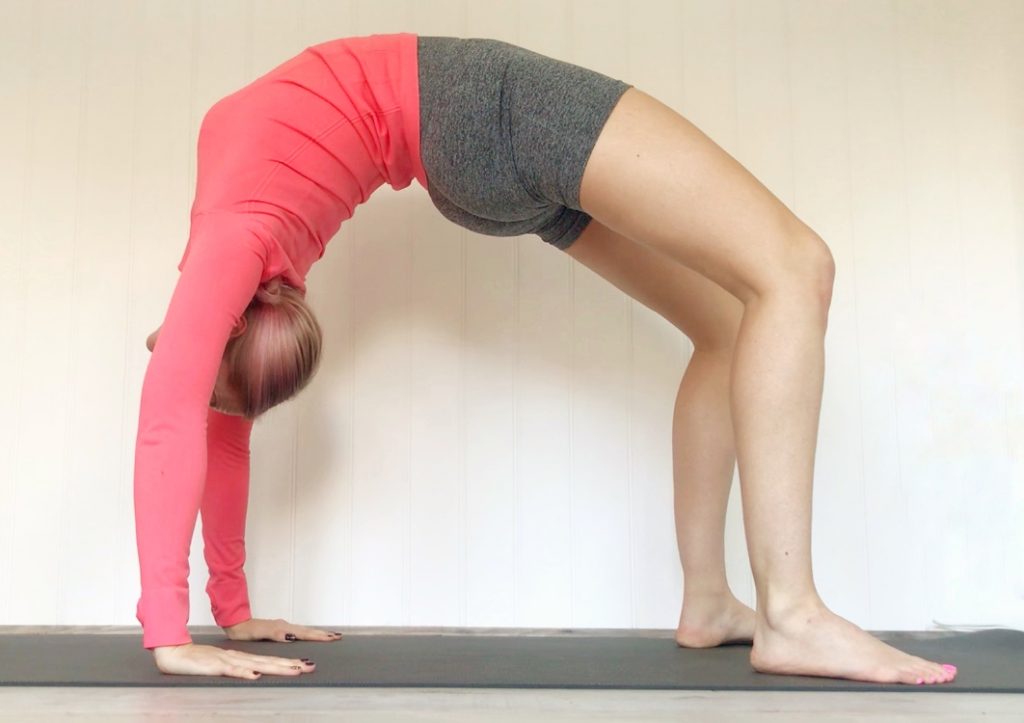
What to expect
Ashtanga yoga is taught in series’ of postures and each student of ashtanga practices the postures according to their own ability. Students are ‘given’ postures by the teacher and practice their sequence individually (although in classes with others) under the guidance of the teacher. Each student therefore is carrying out their individual practice, broadly the same as the other students and yet unique to them. More postures are added to the series as the student grows in strength and flexibility until completion of a series. The next series can then begin (phew!).
This individual approach to yoga (rather than being in a class where everybody is taught the same thing and follows the teacher through the class) is known as ‘Mysore style’ after the place it was originally taught by Krishnamachrya and Pattabhi Jois. Ashtanga can also be presented as a ‘led’ class in the style that we are familiar with, where everybody works through the poses at the same time guided by the teacher – this style is a great place to start your practice.
All students of ashtanga start by learning the postures of the Primary Series. This series is known as Yoga Chikitsa or yoga therapy. The aim is to loosen the body and free the practitioner from stiffness or weakness and allow them the freedom to practice fully. You will find hip opening, hamstring lengthening, spinal flexibility, strength and stamina in the Primary Series.

Is it for me?
Ashtanga yoga is a dynamic practice so you should be prepared to work hard. However, it isn’t yoga for the advanced only and it certainly isn’t reserved for the flexible. Ashtanga often has a reputation for rigidity, but the practice lends itself to variation and modification to suit the individual. Nobody starts an ashtanga practice able to ‘do’ all of the postures. There is work for everybody in this practice.
So what exactly will you find at an ashtanga class?
Structure – the Primary Series (where we all start) consists of sun salutations, fundamental asanas (postures), standing sequence, seated sequence, backbends and a closing sequence. You will learn to know what to expect, but no two days are the same for your body.
Sweat – the practice of ashtanga builds heat in the body. It can be strenuous and definitely raises the heart rate.
Breath-work – each movement in ashtanga is accompanied by the breath. We use the breath to move in and out of poses or hold poses for a breath count. This is the vinyasa – breath with movement.
Meditation – ashtanga, though a strong dynamic practice, becomes a moving meditation due to the structure, breath and counted nature of the vinyasas. You leave the mind behind and crowd out thoughts with the practice.
Accomplishment – The yoga journey is never about achieving postures but about moving beyond the ego to reside in peace; the true nature of the self. Due to the dynamic nature of ashtanga, you will also feel like you have achieved great things. Your body and mind will change with a consistent practice.
Ashtanga is a great place to advance your practice. If you’ve been a yogi for a few years and have felt the magic of yoga, the ashtanga method might be for you. Step outside the comfort zone, try new things and surprise yourself; find strength in backbends, find balance in headstand, find calm in deep twists.
Join me twice a month on Wednesday evenings to get to know the ashtanga method. Master the mind and the body and feel the endorphins flow!
Om shanti shanti shanti
Yoga Focus – What is Kundalini Yoga?
Often referred to as the ‘Yoga of Awareness’ or ‘Holistic Yoga’, Kundalini yoga is a practice fusing several ancient practices and principles to enable the practitioner to manage and manipulate the energetic flow in the body. Kundalini includes the practices of Bhakti yoga (devotion and mantra chanting) Raja yoga (meditation, mental and physical control) and Shakti yoga (the expression and control of energy or power).
A kundalini yoga class can leave you feeling like you’ve been to therapy, done a workout and felt the earth move – vibrationally speaking. Kundalini is a modality by which practitioners can deeply cleanse the nervous system, tune into their inner potential and release energetic blockages or imbalances to find a peaceful life and a balanced outlook. This isn’t just yoga to make the body feel better – this is yoga that can create shifts in every area of your life.
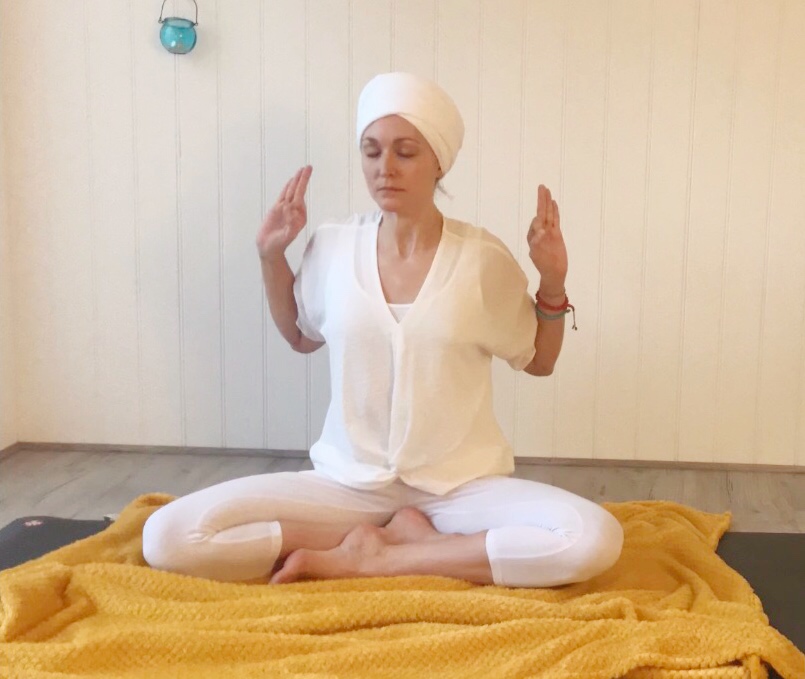
Historically speaking…
The exact date and emergence of kundalini tantra is unclear, but the practices of kundalini energy manipulation and philosophy are mentioned in the Upanishads (vedic yoga texts) dating back to 1000 BC. The term Kundalini means a spiritual energy or life force located at the base of the spine and often represented by a coiled snake. Practicing Kundalini yoga awakens the kundalini shakti (energy of universal creation) and allows it to rise up through the chakra system along the spine to the crown of the head. Each chakra is a wheel or hub of energy at a particular point in the spine where energy channels intersect. Through practicing asana (physical postures), pranayama (yogic breathing techniques) and mantra it is possible to direct the flow of energy through the chakras to have profound effect on the nervous system, the mind and the flow of life. If you’ve ever felt like a passenger in your own life, kundalini may be what you’re searching for.
The practice of kundlini yoga historically was part of tantric tradition. Tantra means secret mantra and as such, the practice was the preserve of the very few privileged gurus and selected students. The modern presentation of Kundalini yoga that we often see today is a blend of several traditions brought to the mainstream by Yogi Bhajan in the 1960’s. Practice involves the use of Kriyas – yoga ‘sets’ of asana, pranayama, meditation and the use of yogic muscle locks or bandhas to direct energy flow and prepare the nervous system, mind and body for the flow of kundalini awakening and rising through the chakra system.
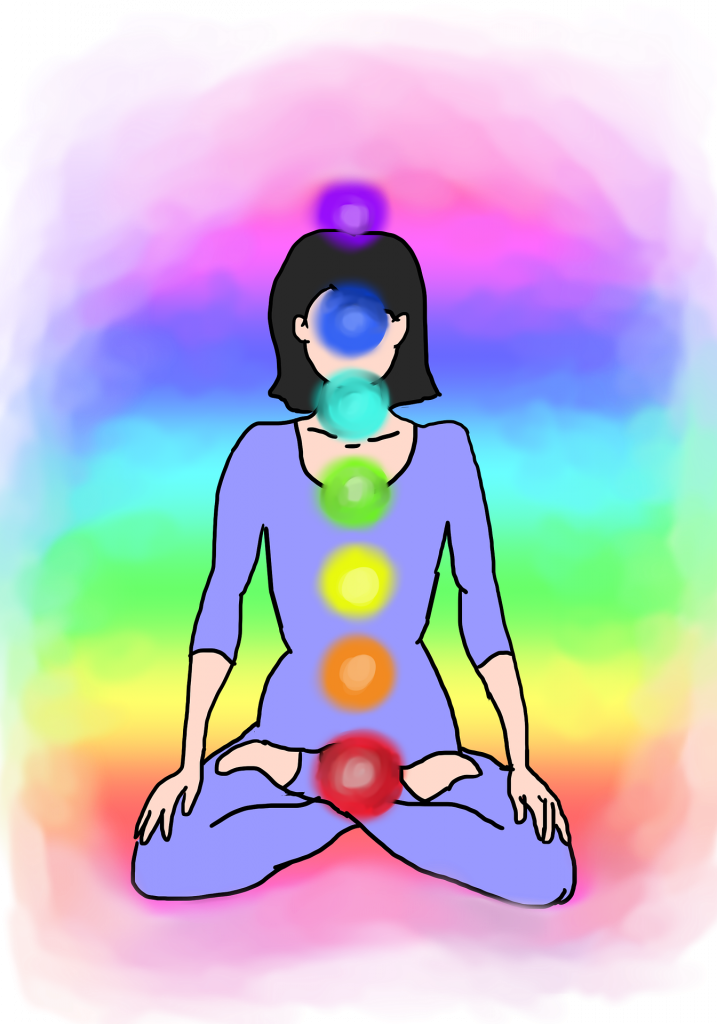
On wearing white
Traditionally teachers and students in kundalini class wear outfits of all white. The choice of white as the universal colour of practice is that colours have an effect on consciousness. Many holistic traditions refer to colours as being inseparably connected to energy points in the body. The chakra system is strongly identified with colours at points from the base of the spine to the crown. The Aura of each individual presents as colours depending on energy flow and interaction.
White is the colour that represents all 7 colours of the chakra system. By wearing white, we project the auric body further away from our physical form, making the energetic changes of our kundalini practice more profound. Wearing white contributes to the efficiency, profundity and progressive effect of our practice. Having said that…your practice is personal to you. If you feel more comfortable or you feel you have a deeper connection to another colour, you can wear whatever assists your practice.
Bowing to the truth within you
Each Kundalini session (following modern principles of Yogi Bhajan) starts with the process of tuning in. We do this by rubbing the palms together, pressing the hands together at the centre of the chest and engaging in the powerful mantra Ong Namo Guru Dev Namo three times. This is your recognition of the universal truth within; bowing to your own destiny.
What to expect
Kundalini yoga is weird – there I’ve said it. Now that’s out of the way, let’s look at what a typical class will involve. After tuning in, we start the Kriya – a set of postures (some of which may be familiar to you if you’ve practiced other forms of yoga), breathing techniques, muscle locks and mantra chanting (silently or out loud). Kundalini isn’t as dynamic as a vinyasa class – you won’t be getting up and down from your mat over and over – but it is still challenging. We use rapid repetition and controlled movements to channel energy. You will feel this as heat, emotional release, fatigue or muscle shakes (along with many other possible effects). It’s a full body, mind and spirit experience in each session. Classes will close with mantra, meditation or sound experiences.
Join me on Wednesday evenings twice a month to embark on the extraordinary journey that is kundalini yoga. Awaken your divine energy in 2021 and make this year the year you reclaim happiness.
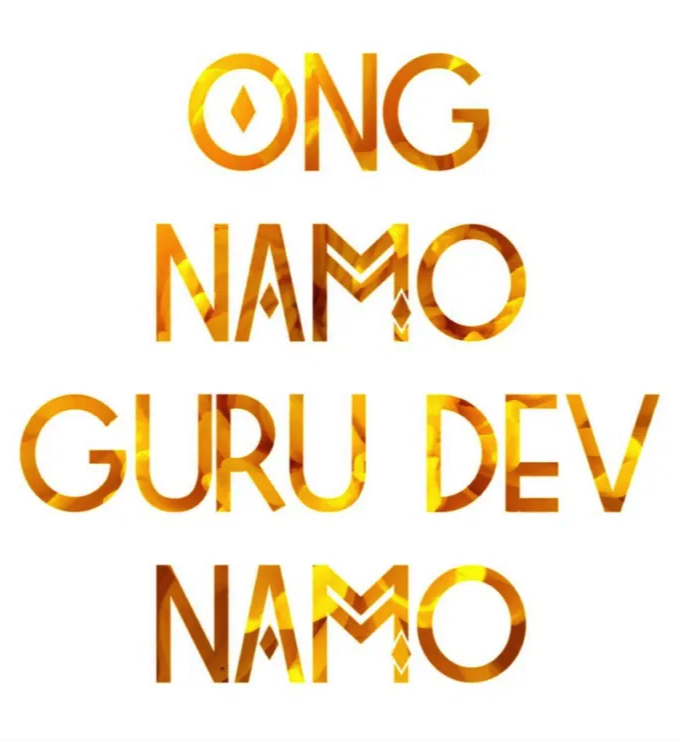
Your Practice, Our Community: Lockdown 2.0
Well we were expecting it weren’t we? But that said, lockdown still comes as a blow to most of us (myself included). But, I’m still here helping you to stay motivated, lifted and encouraged to keep practicing yoga and meditation. We have a great community of yogis and meditators, so lets get through this together!
Back online each week with the following:
Weekly – ’10 minutes a day’ mindfulness practice uploaded to Youtube. Donation based class; pay what you can/wish by PayPalMe
Wednesdays 12 pm – Yin Yang Yoga, £5
Thursdays 6 pm – Vinyasa Yoga, £5
Fridays 10 am – Yin Yoga, £5
You can find out more about the styles of yoga here.

Classes will run when minimum participant numbers (3 people) have been reached, so please book early if you’d like to practice. There is no limit on the number of people who can join, so spread the word to anyone else who needs a little pick-me-up during lockdown.
If you have any issues with booking, please let me know [email protected]
See you online!
Namaste
Community Classes are Back!
I am so very pleased to say that community classes start again this week! All venues have given the go-ahead for classes to resume. There will be new guidelines and procedures for using the community venues in light of COVID-19, but if we all do our bit, we should be able to practice safely together.
The venues are luckily large enough for us to practice and observe social distancing without restricting numbers. We may need to alter the room layout to practice in rows rather than in the circular layout we usually, use, however each class will be assessed based on participants at the time.
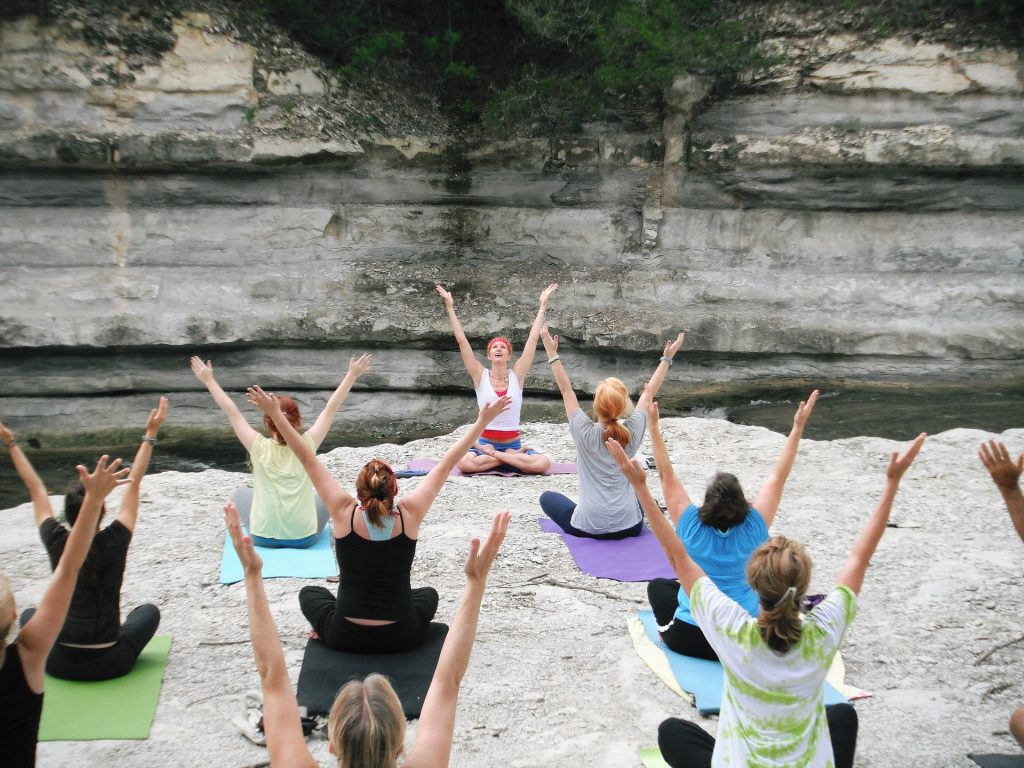
Importantly, as part of track and trace measures, you will be required to provide name, address and contact details so that you can attend class. You can do this in advance by booking online, or you can do this when you arrive at class (please allow extra time for this).
The main points to bear in mind when practicing at community venues are as follows:
- Please queue outside the building allowing 2 metres between each person prior to entering the halls
- A one-way system for entry and exit will be in operation. Please follow signage at the venue
- Hand sanitisers will be available for use at the venues
- There will be no yoga equipment available to borrow; please make sure you bring everything you need with you
- Kitchens will be out of use at all venues. Toilets will be in use to allow one person at a time to use the facilities
- Place your belongings on the floor in the hall to keep use of furniture to a minimum. If you need to use a chair for your practice you can do so, but please leave it set out in the hall for cleaning afterwards.
- Doors and windows will be open for ventilation purposes. Please try not to touch door or window handles unless necessary
- Mats will be spaced 2 metres apart during the class
- You can choose to wear a mask before or during your practice – please make your own assessments of whether this is appropriate for you
- Please make your own assessments of your health and individual risk factors in taking group classes
- If you feel unwell at all, do not attend class
- You will be required to provide name, address and contact details at the time of booking or on entry to the class (please allow extra time for this)
- Payment should be contactless where possible. Loyalty cards can still be used (and cash if that is your only means of payment)
- There will be no late entry once the class has started due to data collecting requirements. Please arrive in good time or book online to provide details in advance of the class.
If you have any questions, please get in touch [email protected]
See you soon!
Namaste
Online Retreat Centre
We may still be in lockdown, but the stresses and strains of life don’t give us a break. Work stress may have slowed down, but family life has certainly ramped up. Living in containment, even with those we love can be challenging.
The Well Nest is still fully open and ready to help you with your mental and physical wellbeing. Classes are on offer throughout the week on a pay as you go basis, monthly subscription or donation/pay what you wish basis.
What’s on?
Weekly classes:
Tuesdays at 12 pm – Mindfulness on Facebook Live. Donation based.
Wednesdays at 12 pm Yin Yang Yoga on Zoom. £5 per session
Thursdays at 6 pm – Vinyasa Yoga on Zoom. £5 per session
Fridays at 10 am – Yin Yoga on Zoom. £5 per session
All Yoga classes are part of the monthly subscription – £25 per month, giving you access to up to 12 classes.
You can book your sessions here, and follow us on Facebook and Instagram for regular updates and special offers.
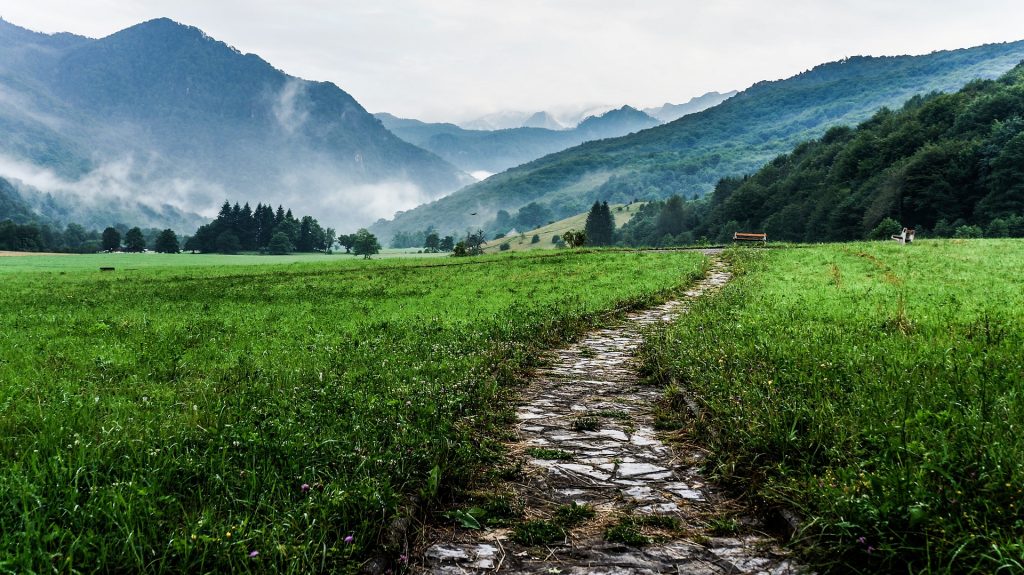
If you’ve never tried meditation or yoga, now is a great time to start your journey. All you need is a space to roll out your yoga mat or a chair in a quiet corner (headphones help!) and you can gain the skills to make a real difference to how you feel physically and mentally.
Life is about balance and there is a real strength in peace. Take your chance to get out of your mind and into your body – into your true experience of the present moment.
